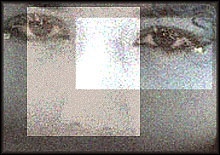Post-Concussion Syndrome Symptoms after Concussion
Post-Concussion Syndrome Symptomatology
Call me at 800-992-9447
Post-Concussion Syndrome is the name given to the constellation of symptoms that occur in a significant minority of people who experience a concussion or mild traumatic brain injury. The first thing to understand about the post-concussion syndrome is that the symptomatology of the classic concussion disability is not necessarily separate and distinct from the disability that comes from more serious injuries. Brain matter can be injured in similar ways in both mild brain injury and severe brain injury. The primary difference may be only the extent of the injury.
As with severe brain injury, there may be two different types of injury contributing to post-concussion syndrome cases. The most discussed is the potential for a widespread injury to axons, called a diffuse axonal injury. The other phenomenon is a focal injury that does not result in a significant loss of consciousness. While much of the focus of the discussion of post-concussion syndrome is on the diffuse injury, that doesn’t mean there may not be localized injury to areas of the brain.
While I am starting off this discussion of post-concussion syndrome with a discussion of the classic symptoms of a diffuse axonal injury, that does not mean that persisting problems from a concussion are all caused by diffuse injury. Likewise, focusing on the classic symptoms of the post-concussion syndrome, does not mean that diffuse axonal injury cannot cause severe brain injury. See our page on severe diffuse axonal injury. Further, it does not mean that these classic symptoms do not also occur to those with severe brain injury. The constellation of symptoms seen in post-concussion syndrome just happen later in the rehab process to those who survive severe brain injury. The reason I have used the term classic in this context is that I believe post-concussion syndrome to be more multi-faceted than typically discussed. Yet, to assist in our beginning approach to understanding symptoms that follow concussion, I have started with the classic symptoms.
Premorbid Factors Contribute to Post-Concussion Syndrome
The next thing to keep in mind is that the symptoms of the classic post-concussion syndrome relate to the processing demands that are put on the brain after the injury. The processing demands on a brain have a direct correlation to an individual’s ability to attend and concentrate. Yet, in assessing the brain’s capacity to handle processing demands after an injury, it is essential to understand how a brain worked before the injury. It is essential to know how a given individual person used his or her attentional capacity before the injury.
I have analogized human attentional capacity to RAM (random access memory) in a computer. Clearly, the human mind is far more complex than a computer. And we are just beginning to grasp how it works. Still, I believe it is a fair comparison to equate the brain’s attentional capacity to RAM. The extent to which the brain’s RAM is overwhelmed by the processing demands of life, is the overriding consideration in understanding the post-concussion syndrome. The decline in cognitive functioning after the MTBI injury, is often more related to overwhelming the brain’s ability to attend, than to specific areas of deficit. When the RAM is overwhelmed, no computer, whether mind or machine, will work efficiently.
In assessing the ability of the brain to function after a brain injury, we have to look at not only the cognitive demands upon the brain, but also the attentional drain of emotional and neurological factors. One cannot understand the post-concussion syndrome without understanding the synergistic nature of this injury. By synergistic, I mean that the sum total of the attentional drain of cognitive, emotional and neurological deficits can be significantly greater than the parts in those who suffer from post-concussion syndrome.




